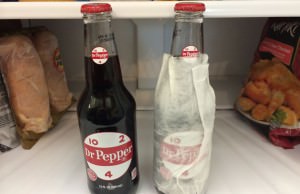The 101 On Hydration

KieferPix
While the summer is scorching its way through our hemisphere, we have many concerns on our mind. These concerns shouldn’t be restricted solely to getting your body ready for the beach and not getting sunburnt, though these are relevant topics to cover, too. One of the crucial points to always keep in mind during humid and hot summer days is keeping yourself hydrated.
You’ve probably heard it an infinite number of times, but hydration is the factor that will make or break you when the sun becomes merciless. If you’ve fallen victim to dehydration once, you’ll probably never allow it to happen again, as it is a highly unpleasant experience. However, it is important not to go to the other extreme and overdo it with liquids (overhydration), because your bladder and your body will not be happy about it.
There are some rules that apply when it comes to staying hydrated.
We’ll start with your thirst instinct. One of the first facts to realize when it comes to staying hydrated is to know how much fluid you actually need during the day. About two liters of water per day is said to be enough to keep the bodily processes up and running, but don’t be afraid to question this. Some people need to drink a lot more fluids than others, and some feel like they’ll explode with two liters of water in their system. Track how you feel and drink accordingly, don’t obey the rules at any cost (especially when it comes to your own body).
Following your gut will also help you evaluate how much water you need during your work out. Your body will readily tell you when it needs to be hydrated, and you should definitely listen, but try not to take a sip every few minutes while exercising. The water you drink will jump around with you in your stomach, which isn’t very pleasant, and can often cause nausea, not to mention that your breathing patterns change. If you need a more precise way to decide how much water you should drink, you can always weigh yourself both before and after you’ve done exercising, and drink about 500 ml for every pound you’ve melted away.
Another common misconception is that people often confuse being hungry with being thirsty and this confusion pushes them into unhealthy snacking. In reality, this claim doesn’t sound plausible, seeing that the feeling of hunger and thirst are vastly different. What makes us snack on whatever comes into our hands are different factors like stress, boredom and bad habits that die hard, but thirst has nothing to do with it. You’ll know that you’re parched when you’re dry-mouthed and nervous, even lightheaded sometimes, but you’ll seldom confuse it with being hungry with a rumbling stomach.
Speaking of thirst and hunger, another myth in need of debunking is that you can drink water instead of eating, and the fluid will help you feel full. It is true that eating soup instead of a burger will make you consume fewer calories, but drinking water to avoid eating isn’t very productive. Water helps your digestion a lot, which means that if you drink it on an empty stomach, it will just run through it and you’ll feel even hungrier than before. This is where placebo effect can be beneficial, though, because if you persuade your body that water makes you full, then that’s how you’ll feel.
Many believe that when you’re thirsty, you’re already dehydrated, but the situation isn’t that extreme. When you feel thirst creeping in or if you’ve been thirsty for a longer period of time, definitely put some fluids in you when the opportunity arises, but don’t think that you’re dehydrated, because it’s simply not true. Your body will always give you cues when you need to increase your water intake, but dehydration has more serious symptoms like feeling foggy, having a headache and feeling confused. It is important to underline that severe dehydration doesn’t come that easily, so there’s no need to worry about your thirst when it appears, simply quench it when you get the chance and move on.
Staying hydrated is definitely an important task and it’s not strictly limited to the summer. We suggest that you listen to your body and act in accordance with it, and you won’t go wrong. Don’t let half-truths about staying hydrated cloud your judgement and always have a water bottle with you, just in case.









